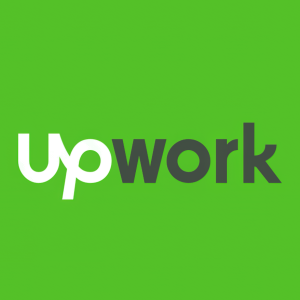Upwork Study Finds Employee Workloads Rising Despite Increased C-Suite Investment in Artificial Intelligence
Rhea-AI Summary
Upwork's recent study reveals a significant disconnect between C-suite expectations and employee experiences regarding AI implementation in the workplace. 96% of C-suite leaders anticipate AI boosting productivity, yet 77% of employees report increased workloads due to AI. The study highlights that:
1. 71% of full-time employees are experiencing burnout, with 1 in 3 likely to quit in the next six months.
2. 47% of employees using AI are unsure how to achieve expected productivity gains.
3. Freelancers are more adept at leveraging AI for productivity, with 48% reporting high skill levels.
4. C-suite leaders utilizing freelancers report significant improvements in organizational agility, work quality, and innovation.
The research suggests that unlocking AI's full potential requires a fundamental shift in work organization and talent management strategies.
Positive
- 96% of C-suite leaders expect AI to increase company productivity
- 85% of companies are already using AI tools
- 48% of freelancers report being 'somewhat' or 'highly' skilled at using AI
- 56% of freelancers do not struggle with client productivity demands
- C-suite leaders report doubling organizational agility (45%) and work quality (40%) by leveraging freelancers
- 35% of C-suite leaders report doubling full-time employee well-being and engagement through freelance talent integration
Negative
- 77% of employees report AI tools have increased their workload
- 71% of full-time employees are experiencing burnout
- 1 in 3 employees likely to quit their jobs in the next six months due to burnout or overwork
- 47% of employees using AI are unsure how to achieve expected productivity gains
- 40% of employees feel their company is asking too much regarding AI implementation
News Market Reaction 1 Alert
On the day this news was published, UPWK gained 0.95%, reflecting a mild positive market reaction.
Data tracked by StockTitan Argus on the day of publication.
Data reveals
SAN FRANCISCO, July 23, 2024 (GLOBE NEWSWIRE) -- Upwork Inc. (Nasdaq: UPWK), the world’s work marketplace that connects businesses with independent talent, today released a new study from The Upwork Research Institute revealing that AI is increasing the workloads of full-time employees, hampering productivity, and contributing to employee burnout.
While business leaders are investing heavily in AI, the study shows that most organizations are currently failing to unlock the full productivity value of the technology. Despite
“Our research shows that introducing new technologies into outdated work models and systems is failing to unlock the full expected productivity value of AI,” said Kelly Monahan, managing director of The Upwork Research Institute. “While it's certainly possible for AI to simultaneously boost productivity and improve employee well-being, this outcome will require a fundamental shift in how we organize talent and work.”
Key findings from the report include:
- Workers are feeling the strain from rising productivity demands, with 1 in 3 full-time employees saying they will likely quit their jobs in the next six months:
81% of global C-suite leaders acknowledge they have increased demands on their workers in the past year. Consequently,71% of full-time employees are burned out, and65% report struggling with their employer’s demands on their productivity. Alarmingly, 1 in 3 employees say they will likely quit their jobs in the next six months due to burnout or being overworked. - C-suite leaders have high hopes that AI will help boost productivity, but employees are experiencing the opposite, with AI making their jobs harder:
96% of C-suite leaders expect the use of AI tools to increase their company’s overall productivity levels. Already,85% of companies are using AI, including39% mandating the use of AI tools and46% encouraging their use. However,77% of employees report that these tools have added to their workload. Employees report spending more time reviewing or moderating AI-generated content (39% ), investing more time learning how to use these tools (23% ), and being asked to do more work as a direct result of AI (21% ).
- For many workers, the path to achieving the productivity gains that employers expect is not clear: Nearly half (
47% ) of employees using AI say they have no idea how to achieve the productivity gains their employers expect, and40% feel their company is asking too much of them when it comes to AI. - Freelancers unlock productivity with AI, outpacing full-time employees: Nearly half (
48% ) of freelancers say they’re “somewhat” or “highly” skilled at using AI, and over a third (34% ) use AI tools at least 1-2 days per week. Additionally, more than half (56% ) of freelancers say they do not experience struggles keeping pace with productivity demands of clients, as compared to just35% of their full-time employee counterparts.
- Many C-suite leaders have doubled organizational agility as well as well-being and engagement among full-time employees as a result of bringing in freelance talent: C-suite leaders leveraging freelancers say they have at least doubled the following outcomes for their business: organizational agility (
45% ), quality of work being produced (40% ), innovation (39% ), scalability (39% ), revenue and bottom line (36% ), and efficiency (34% ). More than a third (35% ) report also doubling the level of well-being and engagement among their full-time employees as a result of bringing in freelance talent. Nearly half (48% ) of C-suite executives even report hiring freelancers to execute delayed AI projects over the past year.
“In order to reap the full productivity value of AI, leaders need to create an AI-enhanced work model,” Monahan continued. “This includes leveraging alternative talent pools that are AI-ready, co-creating measures of productivity with their workforces, and developing a deep understanding of and proficiency in implementing a skills-based approach to hiring and talent development. Only then will leaders be able to avoid the risk of losing critical workers and advance their innovation agenda.”
For full study findings and insights, visit: https://www.upwork.com/research/ai-enhanced-work-models.
For more research from The Upwork Research Institute, visit: https://www.upwork.com/research.
About the Survey
Research findings are based on a survey conducted by Walr, on behalf of Upwork and Workplace Intelligence, between April 16 and May 5, 2024. The survey targeted respondents in the U.S., UK, Australia, and Canada. In total, 2,500 global workers completed the survey, including 1,250 C-suite executives, 625 full-time, salaried employees, and 625 freelancers. The survey sampled a mix of male and female respondents, as well as a mix of respondents from different generations (Gen Z, Millennials, Gen X, and Baby Boomers). All respondents were between the ages of 18-78, were required to have at least a high school diploma, and were required to use a laptop or computer for their work at least “sometimes.”
About Upwork
Upwork is the world’s work marketplace that connects businesses with independent talent from across the globe. We serve everyone from one-person startups to large, Fortune 100 enterprises with a powerful, trust-driven platform that enables companies and talent to work together in new ways that unlock their potential. Our talent community earned over
Learn more at upwork.com and join us on LinkedIn, Facebook, Instagram, TikTok and X.
Contact:
Christine Kim
press@upwork.com








